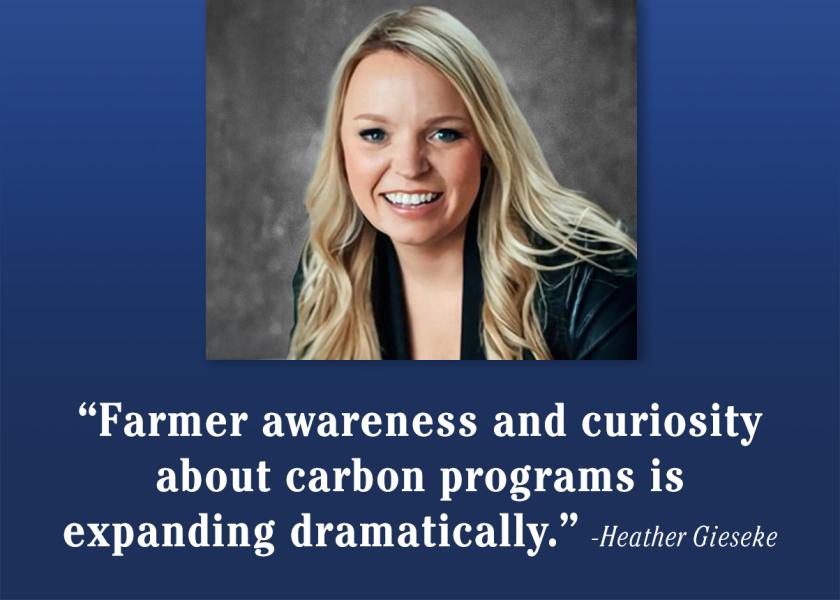3 Questions to Consider About Carbon Programs

By Heather Gieseke
When it comes to carbon programs, most U.S. farmers are sitting on the sidelines.
Recent data shows farmer enrollment in the programs is less than 5%. Many are skeptical about climate change or don’t understand how carbon programs work. Others wonder if there’s really any value in them, and some are concerned that carbon programs will become government-mandated, although the U.S. market today is voluntary.
Yet, having worked in agriculture for my entire career and specializing in carbon the past few years, I know farmer awareness and curiosity about these initiatives is expanding dramatically.
Carbon programs pay farmers for carbon credits, which are then sold in the market to someone looking to offset their carbon footprint. In a carbon program, a farmer is required to implement specific practices, and the program should follow a protocol established with a carbon registry, such as the Climate Action Reserve.
If you’re considering enrolling in a carbon program, keep these points in mind:
1. Does it seem too good to be true?
Carbon programs are not a get-rich-quick scheme. If a program is promising you the world and you have to do nothing in return, you should probably ask more questions or consider other options.
2. Is the organization requiring you to purchase something in order to participate or paying you in a credit to purchase something?
Just because it’s a trusted brand from which you’ve purchased crop inputs or services in the past doesn’t mean it’s qualified to deliver on a legitimate carbon project. Most claims that applying specific products will improve carbon sequestration are not backed by legitimate or peer-reviewed research that verify creditable improvements.
3. Do you have enough information?
Ask some technical questions, even if you aren’t an expert. The salesperson’s responses should alert you right away if the program is legitimate and if they are truly knowledgeable in the carbon arena.
Here are a few to consider:
- Are the credits issued through a registry?
- How are the credits verified?
- Who’s doing the verification?
- How are the credits issued, sold and accounted for?
- Who’s buying the credits? At what price?
- How much does this company keep versus how much you, the farmer, receive?
Shop around if you’re interested in participating in a carbon program. Consider a few from both trusted and new players in the market. Just make sure you’re showing up with a learning mindset and a healthy level of skepticism in order to find the right one.
Heather Gieseke’s insights have helped position agribusinesses for both growth and sustainability — from risk management to carbon mitigation and emission reduction. A leader of Pinion’s sustainability practice, she champions sustainability for the farm, family and business.







